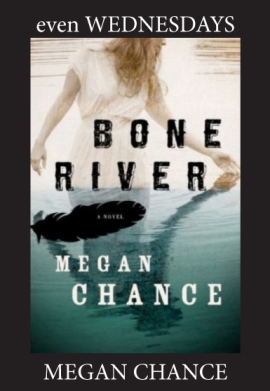 I’ve been rediscovering something I’ve always known, though it’s been brought home to me a bit more recently, and that is that the things you don’t write are often as important as the things you do.
I’ve been rediscovering something I’ve always known, though it’s been brought home to me a bit more recently, and that is that the things you don’t write are often as important as the things you do.
I don’t mean this in the classic way: that stories are made stronger when you choose exactly the right words and take out the dross. Of course that’s true. What I’m talking about is the way research informs a work, and how the thorough knowledge of a place, or a character, or a thing, has a resonance even when you’ve never written the words to begin with. Ghosts in the machine, if you will.
There is a phenomenon that happens when you get a place or subject firmly in your head, when you know it inside and out. Even if you don’t write it down, that knowledge somehow gets on the page. It gets into the words you choose and the things you describe, even if you don’t realize it. It imparts layers and richness. It’s in your subconscious, and as bitchy as she can be, that subconscious is constantly working. Knowledge is a ghost, and one that stays, hovering over every plotline, characterization and description. It even gets into dialogue and style. This is why, no matter what you’re writing, you should understand the very bones of the subject you’re writing about. Even if you choose not to write every detail of how a blacksmith makes a horseshoe, you as a writer must know them. The ghost of that knowledge informs the way you describe him; the way he moves, the things he says, the essence of who he is.
I have often said that even if you’re writing contemporary fiction, it’s important to research your setting back to its founding. Why? Because places are what they are because of the people who chose to live there. New York City’s rationalist Dutch heritage still informs it. The difference between LA and Boston is profound—LA was predominantly a transient population in its early days, men who only wanted to make money and move on. Boston was founded by religious mandate—it was to be a shining city on a hill for believers in a Christian God. These cities are what they are because of their pasts. The ghosts never leave.
This is what happens when you research too. The things you learn stay in your head and color every choice you make. These ghosts in the machine give your work depth, and that is why it’s important to feed them from the start—they are the truth and the essence of everything you write, even if they aren’t on the page.
 Megan Chance is the critically acclaimed, award-winning author of several novels. The Best Reviews has said she writes “Fascinating historical fiction.” Her books have been chosen for the Borders Original Voices program and IndiBound’s Booksense. A former television news photographer with a BA from Western Washington University, Megan Chance lives in the Pacific Northwest with her husband and two daughters. Find her at: http://www.MeganChance.com.
Megan Chance is the critically acclaimed, award-winning author of several novels. The Best Reviews has said she writes “Fascinating historical fiction.” Her books have been chosen for the Borders Original Voices program and IndiBound’s Booksense. A former television news photographer with a BA from Western Washington University, Megan Chance lives in the Pacific Northwest with her husband and two daughters. Find her at: http://www.MeganChance.com.
Site: http://www.meganchance.com/
Twitter: www.twitter.com/MeganSChance
Facebook: https://www.facebook.com/pages/Megan-Chance/116492864590
